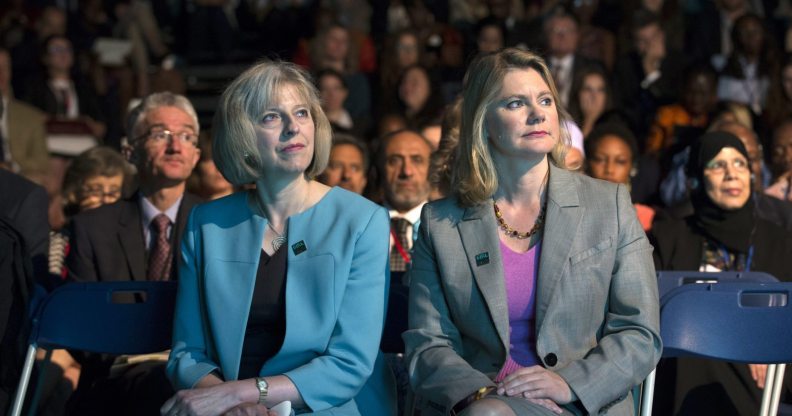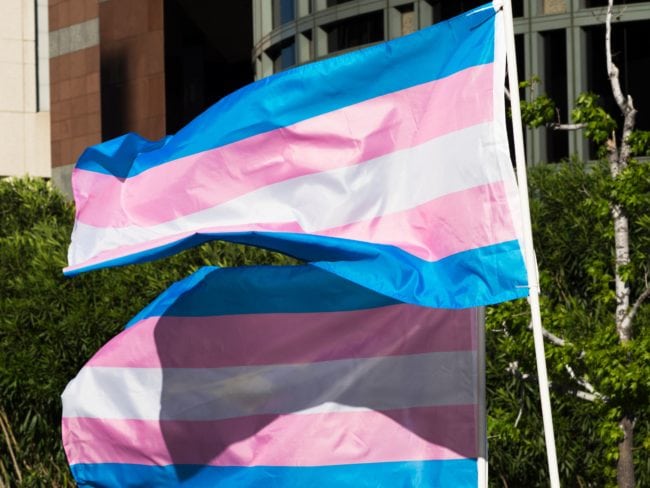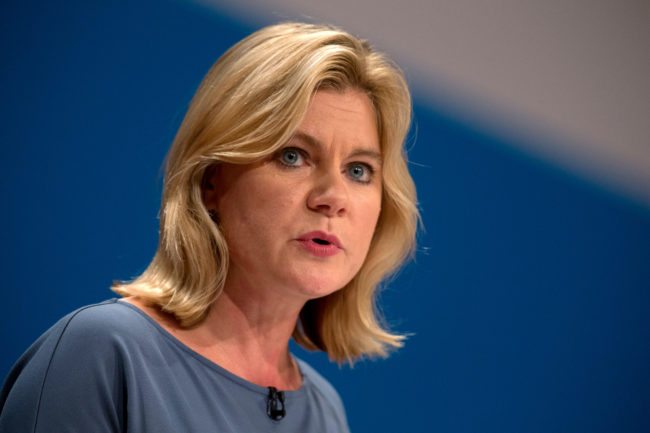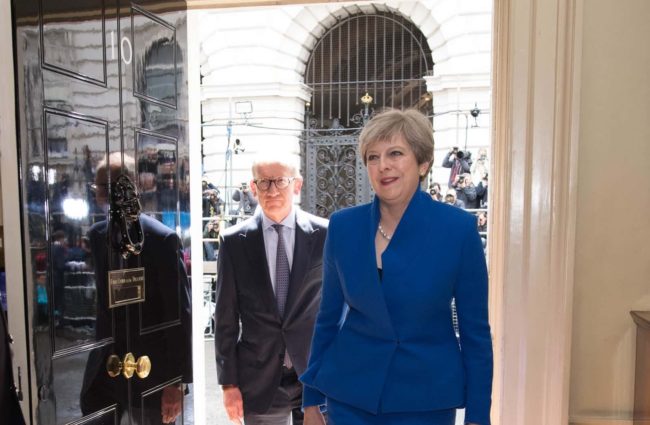LGBT Conservatives: The government is right to change transgender rules

(Getty)
LGBT+ Conservatives vice chair John Cope writes on the government’s plans for LGBT rights.
This year marks the 50th anniversary of the partial decriminalisation of homosexuality. An incredibly important, but also poignant, anniversary providing a reminder that in living memory people were persecuted for their sexuality. We, the 1.5 million LGBT+ people in the UK, thankfully now live in more enlightened times. But battles remain.
When it comes to gender equality, we have made great leaps forward. The gender pay gap and discrimination in the work place have seen a constant pressure and focus of government effort – indeed, the gender pay gap is closing in most sectors and most FTSE boards are no longer no-go areas for women. Although, having said that, there is certainly no room for complacency with a report earlier this year pointing out that there are more men named “John” leading FTSE 100 boards than there are women.
One of the remaining and often most overlooked issues on gender rights, however, continues to be the unacceptable treatment and discrimination faced by those that come under the transgender umbrella, particularly those that don’t fall within the male-female binary.

Trans pride flags
Gender binary is a narrow view of human gender that even a cursory understanding of biology can dismantle. The most common mistake is to use sex and gender interchangeably, normally due to unfamiliarity rather than malintent.
The World Health Organisation is clear however, “gender refers to the socially constructed roles, behaviour, activities and attributes that a particular society considers appropriate for men and women”. Whereas, sex, is comprised of “biological characteristics that define humans as female or male,” although, “these sets of biological characteristics are not mutually exclusive”.
Essentially, gender is a social construct, whereas sex is a physical manifestation of biological characteristics.
RELATED: All 5 living Prime Ministers write for PinkNews on 50th anniversary of landmark gay reforms
As it stands, being part of our society can be difficult for people that don’t fit into the binary definition of gender, or who have a gender identity that does not match their gender assigned at birth. The process of achieving legal recognition or change of identity is invasive, medicalised, and frankly, out of date. This must change – and it will. And like with so many human rights and LGBT+ advances, it’s the Conservative Party that will deliver it.
The main difficulty is obtaining recognition of a change of legal gender. Those who identify as binary trans can apply for a Gender Recognition Certificate, but this process is lengthy, convoluted, and expensive. The process first involves a medical diagnosis of gender dysphoria, as determined by meeting the criteria set out in the Diagnostic and Statistical Manual, and then there must be “sufficient evidence” to prove that a person has been living in their identified gender for at least two years, or even longer.
This all needs to take place before the process of legally changing gender and obtaining a Gender Recognition Certificate can even start. To get this certificate, a panel of judges must decide if the applicant’s assumed gender and their evidence of adopting it is valid – this process very often it either intimidating, humiliating, or both.
RELATED: Justine Greening tells the Church to ‘keep up’ on same-sex marriage

Justine Greening (Getty)
The Equalities Minister, Justine Greening, has been absolutely clear that this can’t carry on. This process for changing gender must be streamlined and entirely de-pathologised. To achieve this, the legal system that underpins gender recognition, the Gender Recognition Act (2004), must be changed.
To achieve this, the Government has made a commitment to remove the need for a medical diagnosis of gender dysphoria before being able to apply for gender recognition; and
reducing the length and intrusiveness of the gender recognition system.
Together these scrap out of date bureaucracy, high costs, and unnecessary medical burdens for those who undergo the process of changing their gender.
The precise detail of these proposals, and efforts to pre-empting unintended consequences, are important however – with such a personal and sensitive issue at stake, this must be done properly and in a thought through way.

The public consultation on this issue aims to achieve exactly that.
Alongside reform of the Gender Recognition Act, the Conservative Government has launched a national “LGBT survey”. Another important further step towards understanding and ending discrimination. The survey aims to capture the experiences of LGBT+ individuals across the UK and use them to identify ways public services can better support LGBT+ people on a whole range of things, from health and education, to ending to more subtle forms of discrimination in the workplace. The survey will run until 15 October and I sincerely hope you will make your voice heard.
John Cope is Vice-Chair of LGBT+ Conservatives and former Adviser to the Rt Hon. Nicky Morgan MP

